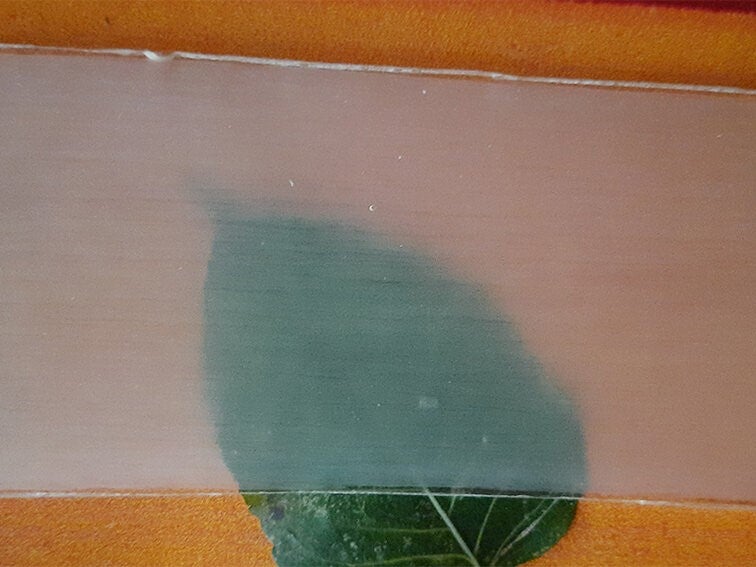Transparent wood can replace plastic, study claims
Material could find applications in windshields, see-through packaging and biomedical devices, researchers say

Researchers have developed a type of transparent wood that they claim could offer a sustainable and environmentally-friendly alternative to plastic.
A team from the Institute of Wood Science and Technology in Bangalore, India, created the see-through wood by removing the lignin and replacing it with epoxy.
The material could potentially be used to replace glass and plastic in applications like car windshields, transparent packaging and biomedical devices, according to a study detailing the development.
“Transparent wood as a material can replace the environmentally harmful petroleum-based plastics, such as polypropylene, polyvinyl chloride (PVC), acrylic and polyethylene,” said Prodyut Dhar, an assistant professor who co-authored the study.
“Plastics are used as a substitute for glass, which is naturally fragile. However, transparent wood is an even better alternative from an ecological perspective as observed in our life-cycle analysis.”
Transparent wood was first created in 1992 by German scientist Siegfired Fink and has since been touted as a lighter, stronger and better performing alternative to glass.
Previous methods to remove lignin from wood have involved harsh chemicals, though recent advances have made it suitable for scalable production that is “ecologically favourable”.
“Transparent wood is mostly developed using thin slices of wood, and has good strength as that of regular wood but is lighter in weight. The scope for imparting multiple and advanced properties through the incorporation of specialised materials makes it a unique bio-based substrate for versatile applications,” Anish M. Chathoth, a transparent wood researcher at the Institute of Wood Science and Technology, told SciDev.net.
“In recent times transparent wood has been used in construction, energy storage, flexible electronics and packaging applications... Given the growing concerns about the environmental impact of petroleum-based plastic materials, transparent wood has a role in maintaining environmental sustainability.”
A study detailing the material, titled ‘Life cycle assessment of transparent wood production using emerging technologies and strategic scale-up framework’, was published in the scientific journal Science of the Total Environment.
Join our commenting forum
Join thought-provoking conversations, follow other Independent readers and see their replies
Comments
Bookmark popover
Removed from bookmarks